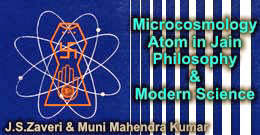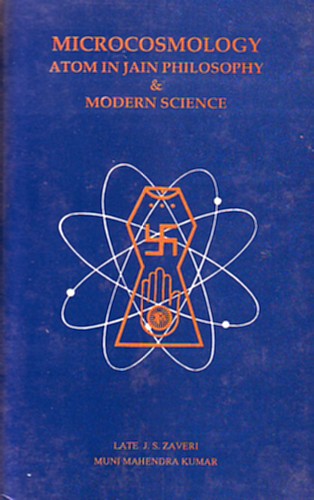
Pudgala - General Properties
Permanence (eternal existence) and non-transmutability are universal qualities of all substances including pudgala. Earlier, we had stated that 'temporally' pudgala is eternal, i.e. without a beginning and without an end. In the Bhagavati sutra, this attribute of pudgala is described extensively thus: "kalao na kayai na asi, na kayai natthi, na kayai na bhavissai - bhavimsu ya, bhavati ya, bhavissai ya - dhruve, niyae, sasae, akkhae, avvae, avatthie, nicce.' [2/10/129]
In this Sutra, the eternal existence of pudgala is described by a group of apparent synonyms with subtle nuances. It would be extremely difficult to translate each term of the sutra by an exact English word. We shall, try to give an appropriate group of words which gives the same sense as the sutra:
" Kalao…….bhavissai ya" means:
- Temporally, in the past, there was never any time when pudgala did not exist;
- in the present, there is no time when pudgala does not exist;
- in the future, there will not be any time when pudgala will not exist;
stated in positive words, it means:
- pudgala did exist at all times in the past;
- pudgala does exist in the present;
- pudgala shall exist at all times in the future.
- "Pudgala is dhruva i.e., it is perpetual/persistent which emphasizes its endless continuity without pause."
- "Pudgala is niyata i.e., it is quantitatively immutable or fixed which indicates that the law of conservation is strictly-applicable. It means that the total quantity of pudgala in the universe is always constant [Tat. Siit. Siddhsena's Commentary, 5/3.]; whatever was the quantity in the infinite past will always remain the same- in the infinite future. Not a single paramanu (ultimate atom) has been destroyed in the past nor will it be destroyed in future. Not a single paramanu was newly created in the past nor will it be created in future."[ A parallel conception of this quality is the "Principle of Conservation of Matter and Energy" in modern science.]
-
"Pudgala is sasvata,[1] i.e. it is eternal/timeless, which emphasizes that pudgala exists irrespective of time, and further implies that it had always existed in the past also; thus, it has neither beginning nor end."[1] Tbe word sasvata could also be translated as 'everlasting'. But, this is not appropriate here. In Christian Theology, the soul is everlasting but not eternal, because the soul of each new-born infant is a fresh creation which is immortal, and therefore, everlasting. In Jainism, each individual soul has no beginning and need never end, and is, therefore, eternal
- "Pudgala is aksaya, i.e., it is imperishable/indestructible, which means that pudgala never ceases to exist, and its existence is not affected by the passage of time, and it is immune from extinction."
- "Pudgala is avyaya, i.e., it is immune to loss, which again emphasizes the quantitative steadiness/conservation of pudgala."
- "Pudgala is avasthita i.e., it is non-transmutable."
- "Pudgala is nitya i.e., it is permanent/continuous, which emphasizes its uninterrupted continuity."
 Jethalal S. Zaveri
Jethalal S. Zaveri
 Prof. Muni Mahendra Kumar
Prof. Muni Mahendra Kumar

